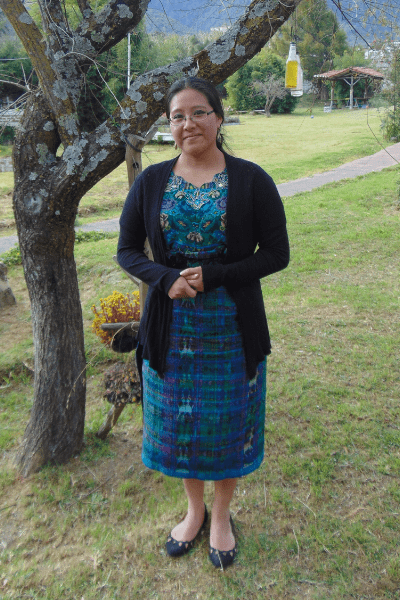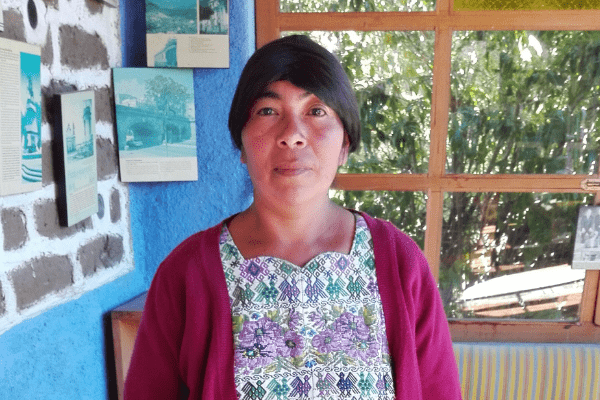Bilingual and intercultural education project in Guatemala
Helping Maya children to learn better
Guatemala has a rich ethnic, cultural and linguistic diversity: while Spanish is the official language of the country, there are also 22 other Mayan languages – such as Q’eqchi’ or Kaqchikel. Although these languages are recognised by the State, the Maya population still experiences severe discrimination and the education system does not take sufficient account of the language and culture of indigenous populations.
In 2001, as part of the Bilingual and Intercultural Education Programme, Enfants du Monde began its intervention in the Alta Verapaz region to improve the quality of education and to train the teaching staff in bilingual and intercultural education. Since then, at the request of the Guatemala Ministry of Education (MINEDUC), the programme has been extended into other areas and linguistic regions: our association works in the municipalities of Cobán and San Juan Chamelco with Mayan Q’eqchi’ communities, and in the municipality of Tecpán, with the Kaqchikel speaking community.
Our impact on the ground
Enfants du Monde is changing the future for thousands of Maya children. These are the expected figures for 2021-2024:
- Almost 25,000 schoolchildren benefit from a quality bilingual intercultural education ;
- 1,005 teachers from 273 schools are trained in Cobán, San Juan Chamelco and Chimaltenango ;
- 10 school principals and 80 parent members of 10 education councils made aware of the importance of bilingual intercultural education, children’s rights, and education in sustainable development.
Improving the quality of education for Maya schoolchildren
Since the 1970s, the Guatemala Ministry of Education has followed a policy of bilingual and intercultural education and seeks to promote teaching in the mother tongue of schoolchildren. Despite these efforts, many Maya schoolchildren still do not have access to quality education. In order to improve the quality of education in these schools, Enfants du Monde is involved in training the teachers.

The training has helped me improve my level in kaqchikel, to be more aware of the importance of passing on our traditions and our local culture, to be more open to new methods of teaching and learning, to acknowledge the importance of bilingualism and in my school to promote learning in two or three languages at once. The schoolchildren can learn everything at the same time, and sometimes the limitation lies with the teachers or the available resources.
Involving the community
Until 2020, parents of schoolchildren were made aware of the importance of training and of bilingual intercultural education for their children at education council meetings.
In the past, the children only learned to say a few words in kaqchikel, everything was in Spanish. It’s better for the children to learn in their own language, that they place more importance on their language and culture, on the customs of their village. But this has to happen at home too, families must also use the local language, so they don’t lose it.

Adapting teaching to the COVID-19 context
In Central America, Guatemala was among the countries most affected by the COVID-19 pandemic. Schools remained closed for almost 2 years. During this time, Enfants du Monde contributed to the emergency plan Aprendo en Casa y en Clase established by the Ministry of Education to support both schoolchildren and teachers in the introduction and success of learning at home.
The Guatemala Ministry of Education in collaboration with Enfants du Monde and the Directorate General for Bilingual and Intercultural Education (DIGEBI) provided self-learning guides and radio programmes in Maya and in Spanish as well as distance training for teachers.
Helping our beneficiaries in emergency situations
From January 2021 Enfants du Monde provided food aid and psychological help for 400 families with 1,200 children in 14 communities in the Alta Verapaz department following flooding in November 2020 after hurricanes ETA and IOTA. Humanitarian aid organisations are actually few and far between in this region and local governments did not have the capacity to deal with this emergency. That is why, in collaboration with CIPREVICA our NGO partner and the financial support of Swiss Solidarity, Enfants du Monde provided aid for the populations of Alta Verapaz.
